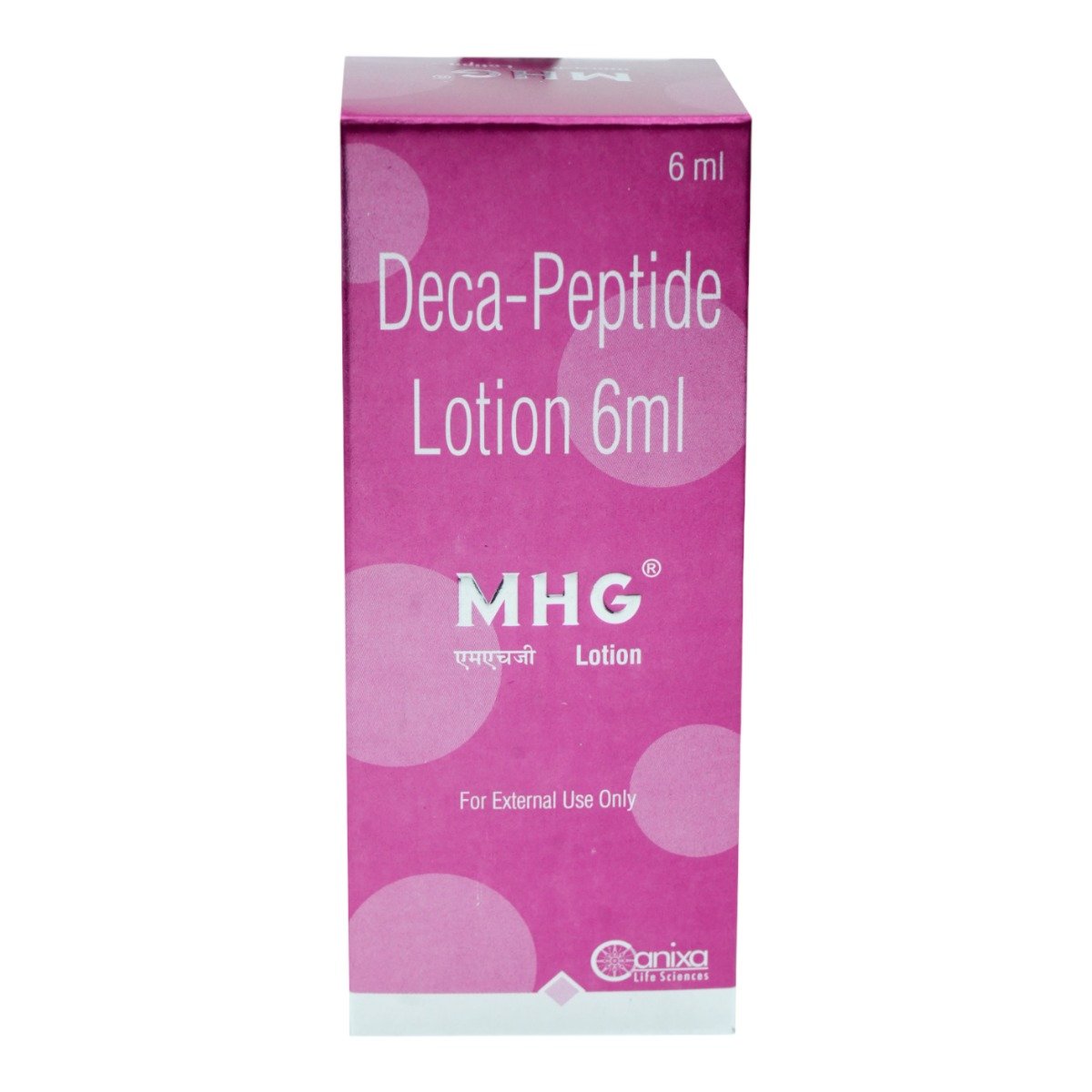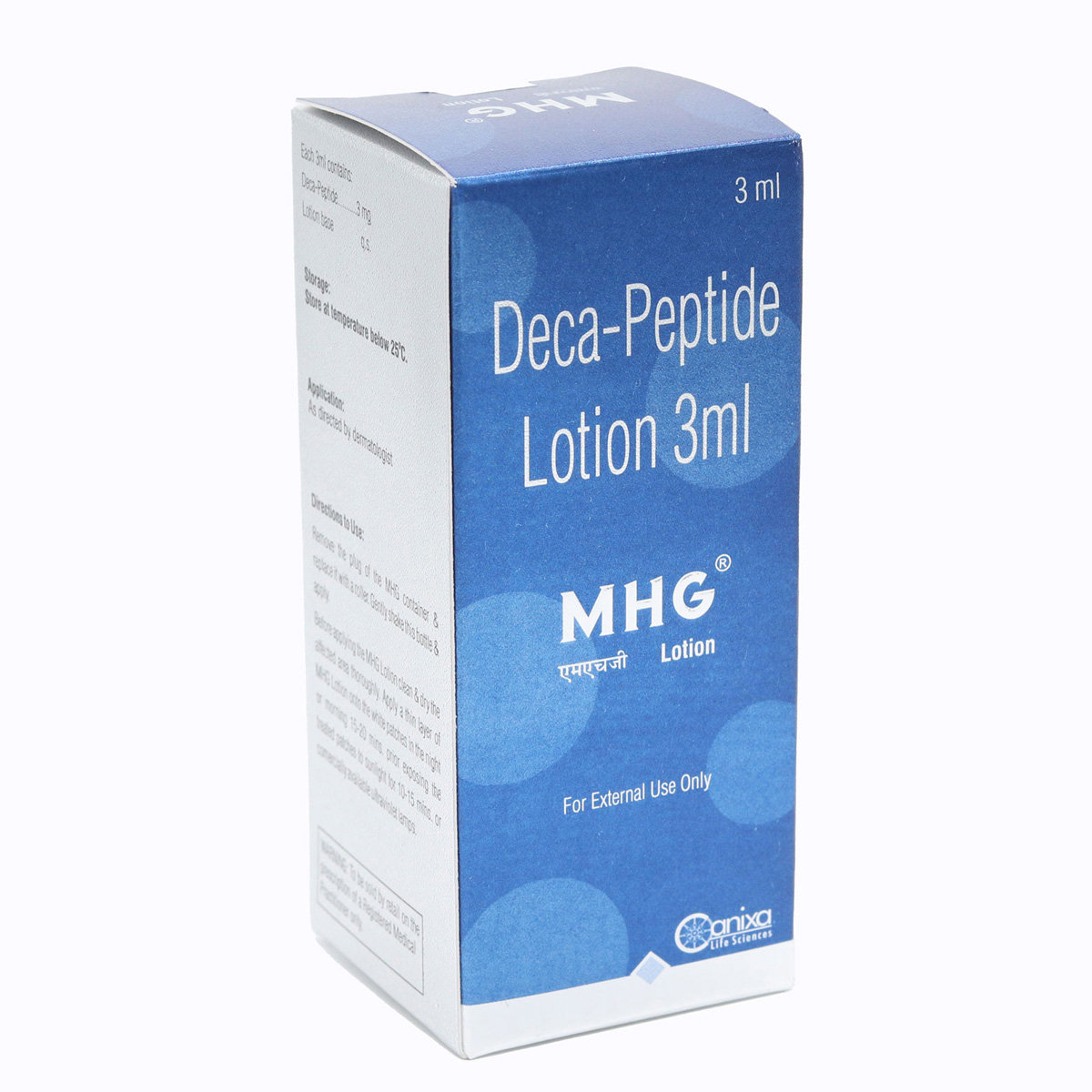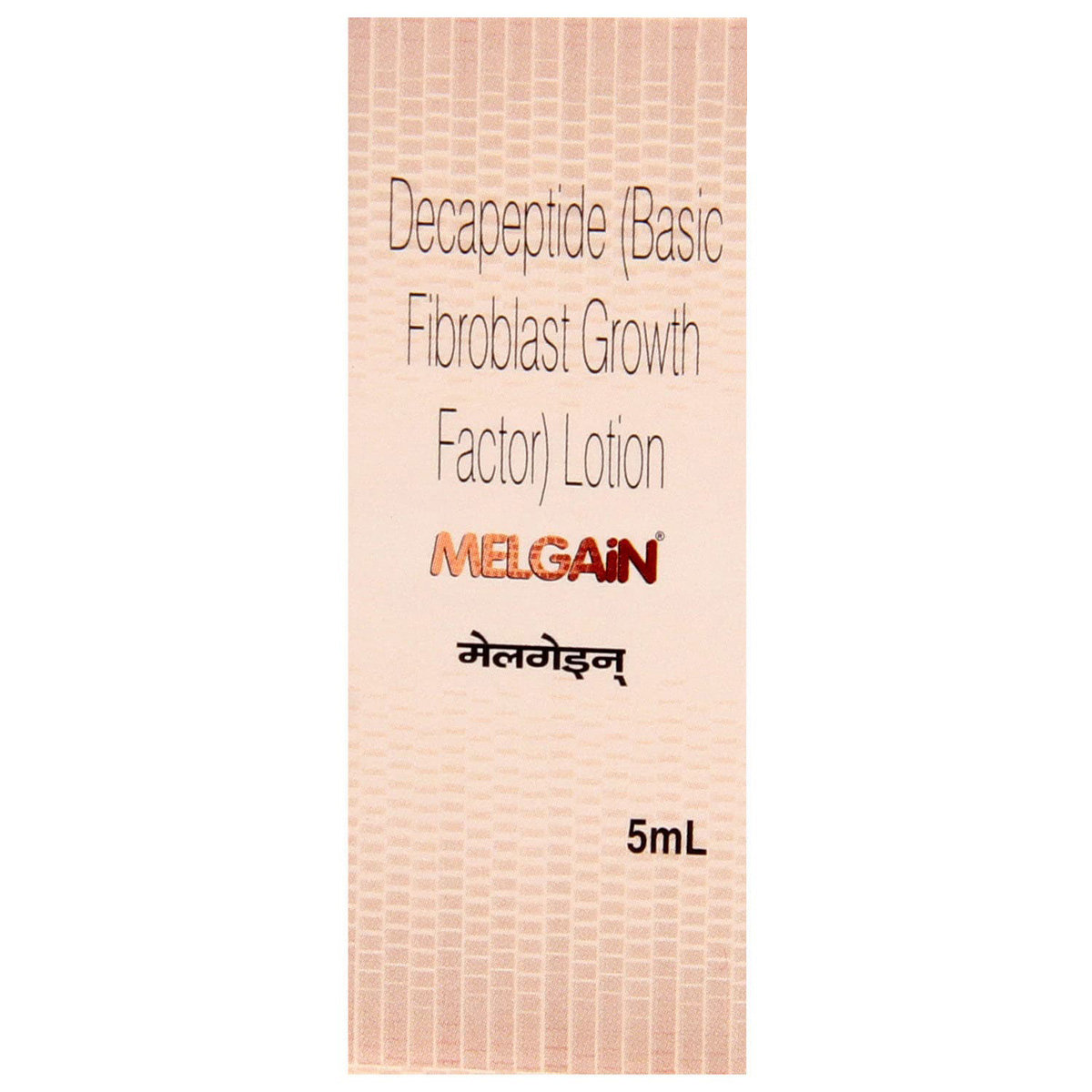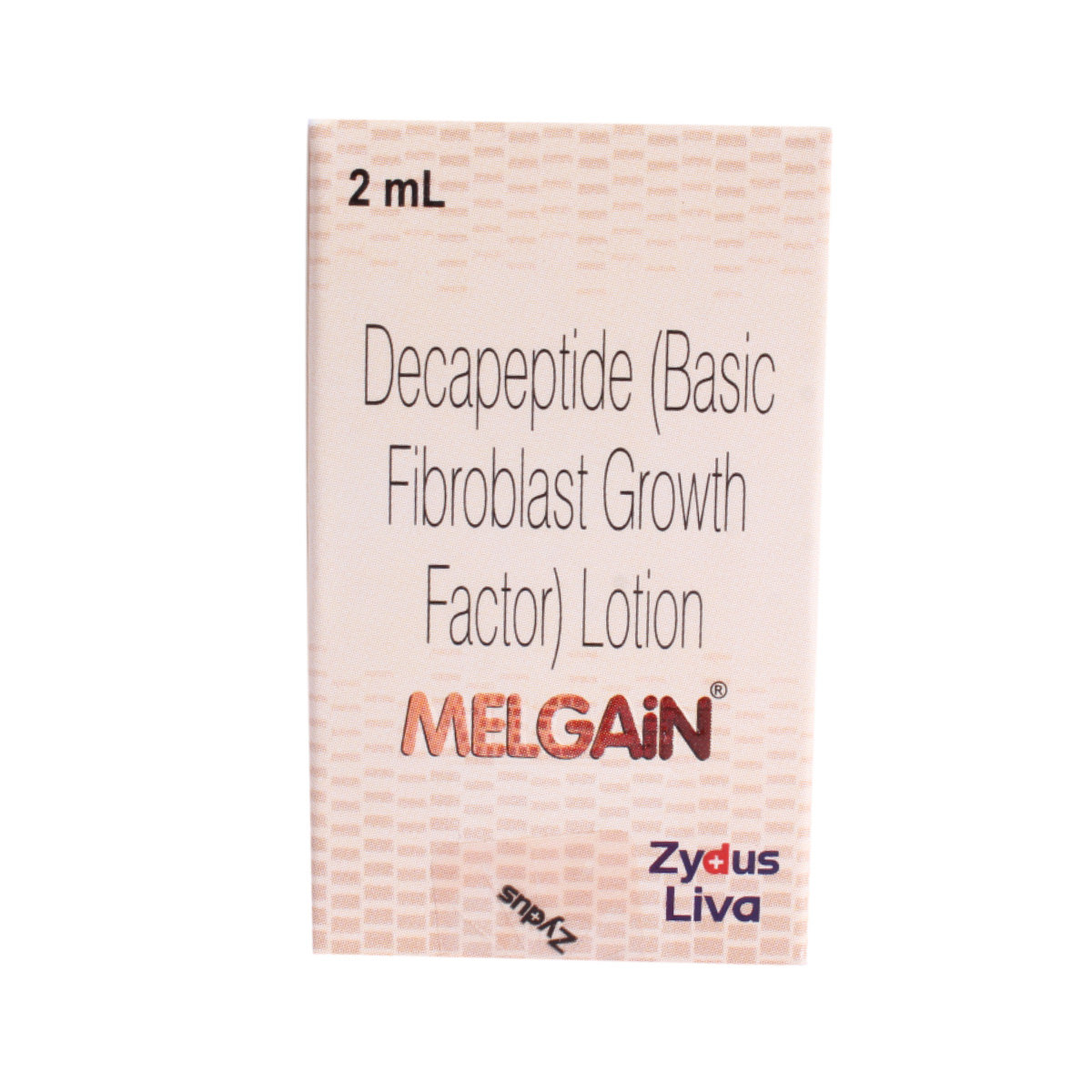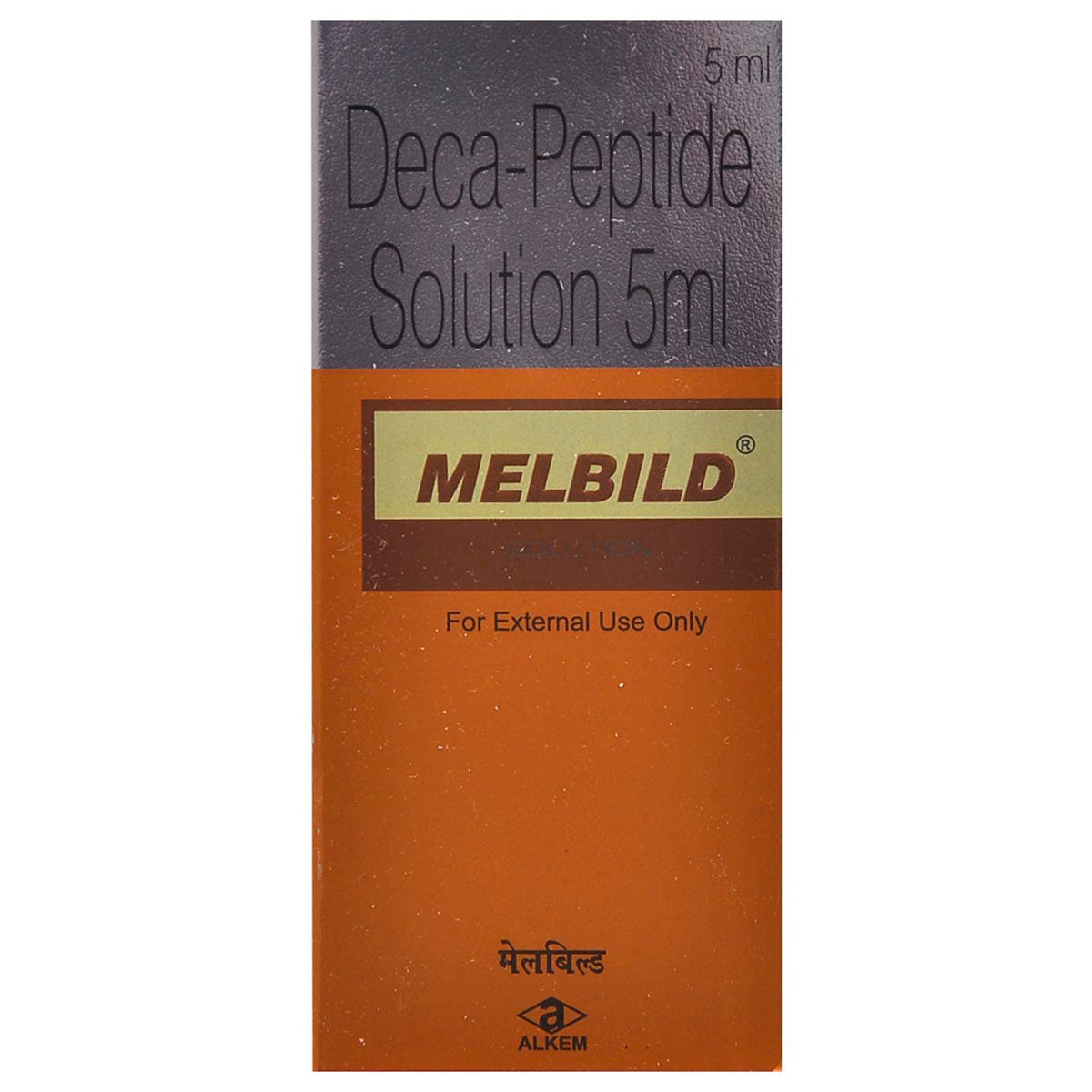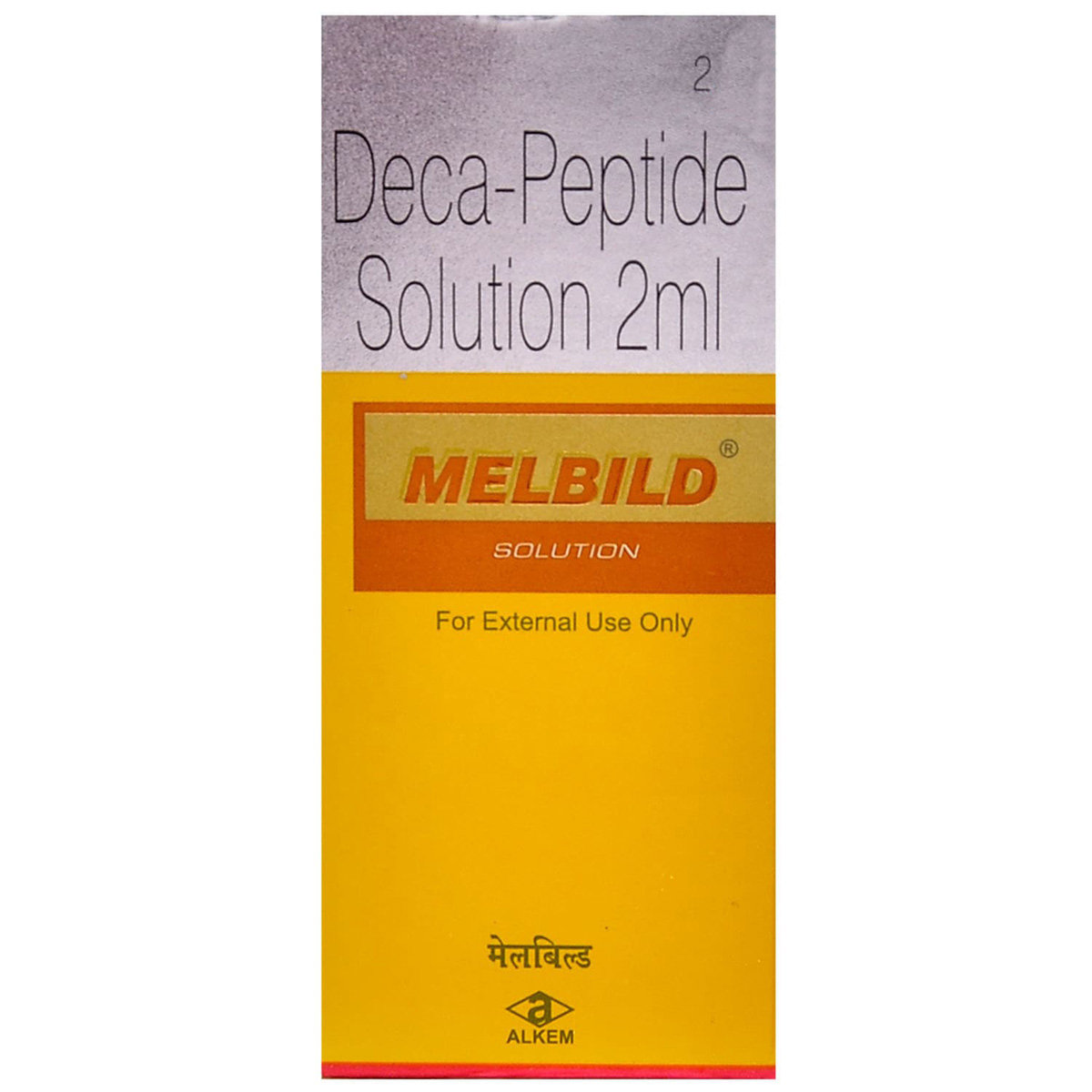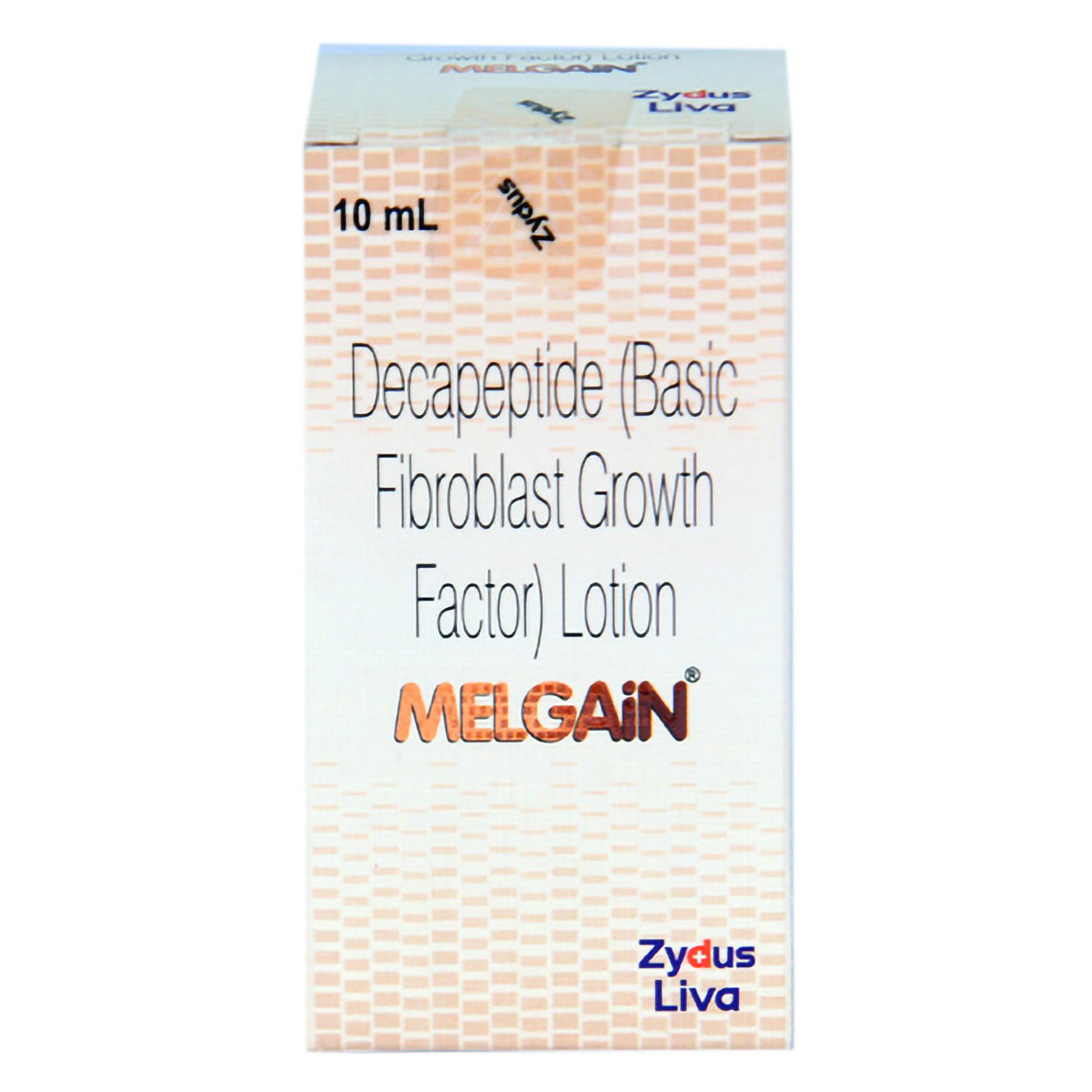Decapeptide
About Decapeptide
Decapeptide belongs to the 'depigmenting agents' class. It is primarily used in vitiligo treatment. Vitiligo is a long-term skin condition that causes pale white patches to appear on the skin. It is caused by a lack of melanin, the pigment in the skin. Vitiligo can affect any skin area, but it is most common on the face, neck, hands, and skin creases.
Decapeptide contains 'Decapeptide' as an active ingredient. Topical application of Decapeptide solution induces migratory behaviour and proliferation of melanin-producing cells (melanocytes) in white depigmented patches of skin and roots of the hair. Thereby, it helps to treat vitiligo patches.
Decapeptide is solely intended for external use. In some cases, you may experience skin irritation, dry skin, burning sensation. Most of the Decapeptide's side effects do not necessitate medical treatment and gradually fade over time. However, if the side effects persist or worsen, please contact your doctor.
You should not take Decapeptide if you are hypersensitive to any components/ingredients in the formulation; please check with your healthcare provider if you are unsure about it. Keep your physician up to date on your health condition and the medications you are using to rule out any possible interactions. Consult your doctor before taking Decapeptide if you are pregnant or breastfeeding.
Uses of Decapeptide
Medicinal Benefits
Decapeptide belongs to the group of medicines called 'depigmenting agents'. It contains 'Decapeptide' as an active ingredient used to manage vitiligo patches. Topical application of Decapeptide solution induces migratory behaviour and proliferation of melanin-producing cells (melanocytes) in white depigmented patches of skin and roots of the hair. Thereby, it helps to treat vitiligo patches.
Directions for Use
Storage
Side Effects of Decapeptide
- Skin irritation
- Dry skin
- Burning sensation
Drug Warnings
Do not use if you are hypersensitive or allergic to decapeptide or any ingredients in the Decapeptide. Inform your doctor if you are using any medicines other than Decapeptide. Before using this medicine, you should inform your doctor if you are pregnant, planning pregnancy, or breastfeeding. Decapeptide may make your skin more sensitive to the sun. Use sunscreen and protective clothing when outdoors as per doctors' advice. It may also cause changes in the colour of your untreated skin. Talk to your doctor if this bothers you. Decapeptide is solely intended for external use. Avoid making contact with your eyes, mouth and nose. In the event of accidental contact, thoroughly rinse with cold water.
Drug Interactions
Drug-Drug Interactions: No interactions were found/established.
Drug-Food Interactions: No interactions were found/established.
Drug-Disease Interactions: No interactions were found/established.
Drug-Drug Interactions Checker List:
Safety Advice

Alcohol
cautionNo interactions were found/established.

Pregnancy
cautionThe safety of Decapeptide during pregnancy has not been established. Please seek medical advice before using the Decapeptide.

Breast Feeding
cautionThe safety of Decapeptide during lactation has not been established. Please seek medical advice before using the Decapeptide.

Driving
safe if prescribedDecapeptide has no or negligible influence on the ability to drive or use machines.

Liver
safe if prescribedNo interactions were found/established.

Kidney
safe if prescribedNo interactions were found/established.

Children
cautionLimited research is available on the use of Decapeptide in children. So, please do not use Decapeptide in children without a doctor's advice.
Habit Forming
Diet & Lifestyle Advise
- Consume bananas, apples, leafy greens, kale or romaine lettuce, chickpeas, garbanzo beans, root vegetables, beets, carrots, radishes, figs and dates.
- Take salmon, sardines and other fish rich in omega-3 fatty acids.
- Take antioxidant-rich herbs and spices like thyme, sage, cumin and ginger.
- Avoid or limit the intake of blueberries, citrus, coffee, curds, fish, fruit juice, gooseberries, grapes, pickles, pomegranates, pears, red meats, tomatoes, and wheat products.
- Avoid alcohol intake and quit smoking.
- Wear loose-fitting bodywear and clothing, such as boxers or boy shorts. Tight clothing can irritate sensitive skin and cause symptoms to worsen.
- Choose natural fabrics/clothes made from cotton or silk that are kinder to your skin than synthetics.
Patients Concern
Disease/Condition Glossary
Vitiligo: Vitiligo is a chronic skin disorder that causes pale white spots to appear on the skin. It is caused by a deficiency of melanin, which is the pigment in the skin. Vitiligo can affect any skin area, but it commonly happens on the face, neck and hands and in skin creases. Vitiligo typically begins as a pale patch of skin that gradually becomes completely white. A patch's centre may be white, with paler skin surrounding it. The severity of the condition varies from person to person. Some people develop a few small white patches, while others develop larger white patches that spread across large areas of their skin.
FAQs
Decapeptide promotes the formation of pigment-producing cells known as melanocytes. It also aids in the migration of melanocytes to the afflicted area, restoring skin tone.
Depending on the severity of your medical condition, your doctor may prescribe it to you for an extended time on a daily basis. However, please do not use it continuously without consulting a doctor.
Do not apply any other topical medications without a doctor's recommendation. If it requires the application of any other medication, please maintain at least 2 hours gap in-between them.
Decapeptide is safe if used as prescribed. No severe or fatal side effects or contraindications have been reported so far. If any of the side effects persist or worsen, consult your doctor.
Vitiligo does not cause skin discomfort, such as dryness, but the patches can sometimes be itchy.

